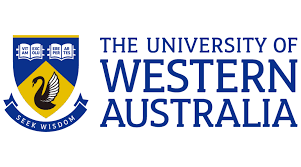University of Western Australia: Two UWA projects awarded $1.2 million in national research funding
A project that will develop new technology for measuring ocean surface currents at unprecedented fine resolution and a study that will investigate ways to alleviate herbicide damage to crops will receive a combined $1.2 million in Federal Government funding.
The funding, announced this week by Acting Minister for Education and Youth Stuart Robert, is part of the Australian Research Council’s linkage project scheme with successful projects based on strategic research alliances with various industry and community partners.
Dr Matthew Rayson, a senior research fellow in The University of Western Australia’s Oceans Graduate School, has been awarded $707,971 to lead a project that will generate new knowledge on ocean surface current processes.
“We’ll be using modern remote sensing technology and advanced statistical analysis techniques to better estimate ocean surface currents from aerial imagery of surface waves,” said Dr Rayson, a physical oceanographer.
“Our research is expected to directly benefit all sorts of industries operating in Australian waters including search and rescue, offshore energy, defence and our response to marine pollution.”
A further $530,029 in funding will go to Professor Zed Rengel from the UWA School of Agriculture and Environment and The UWA Institute of Agriculture to lead a study testing the potential of fulvate and manganese in alleviating herbicide damage to crops.
While glyphosate is a widely used herbicide, its drift can cause growth depression in sensitive plants such as wheat by reducing the uptake of metallic micronutrients, particularly manganese.
Professor Rengel and his team will assess the alleviating potential of fulvate and manganese on the growth and micronutrient uptake by wheat exposed to glyphosate drift and the role land management plays in the effect of the treatments.
UWA Deputy Vice-Chancellor (Research) Anna Nowak congratulated the researchers and said the ARC funding would support research that would deliver tangible benefits to the community in Australia and globally.
“This research will translate into economic, social and environmental impact and importantly, both projects involve industry and community partnerships with researchers, all working together as teams to solve real world problems,” Professor Nowak said.

